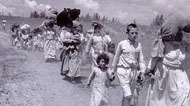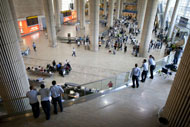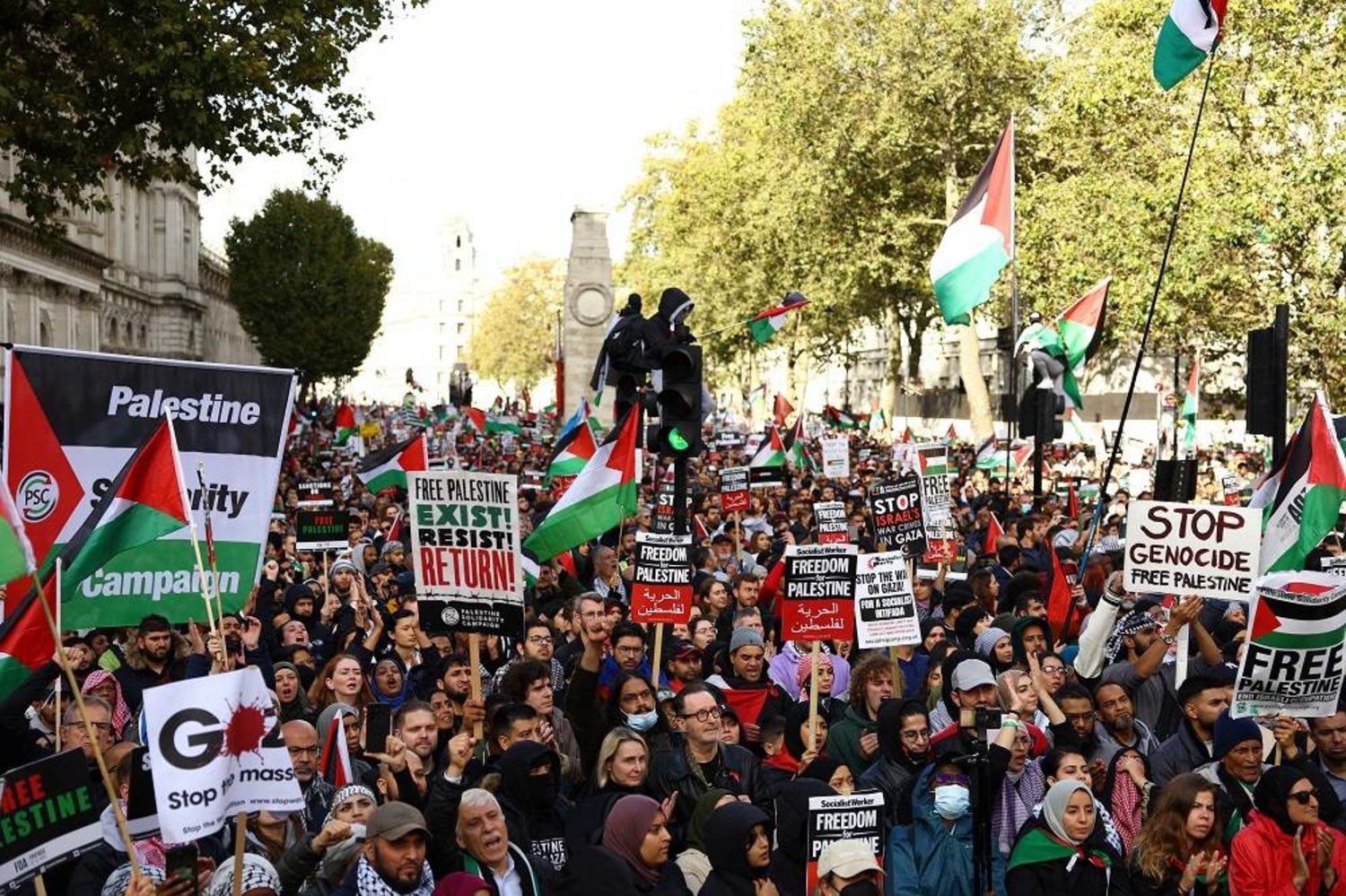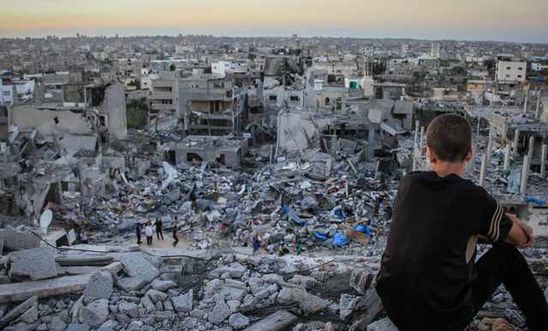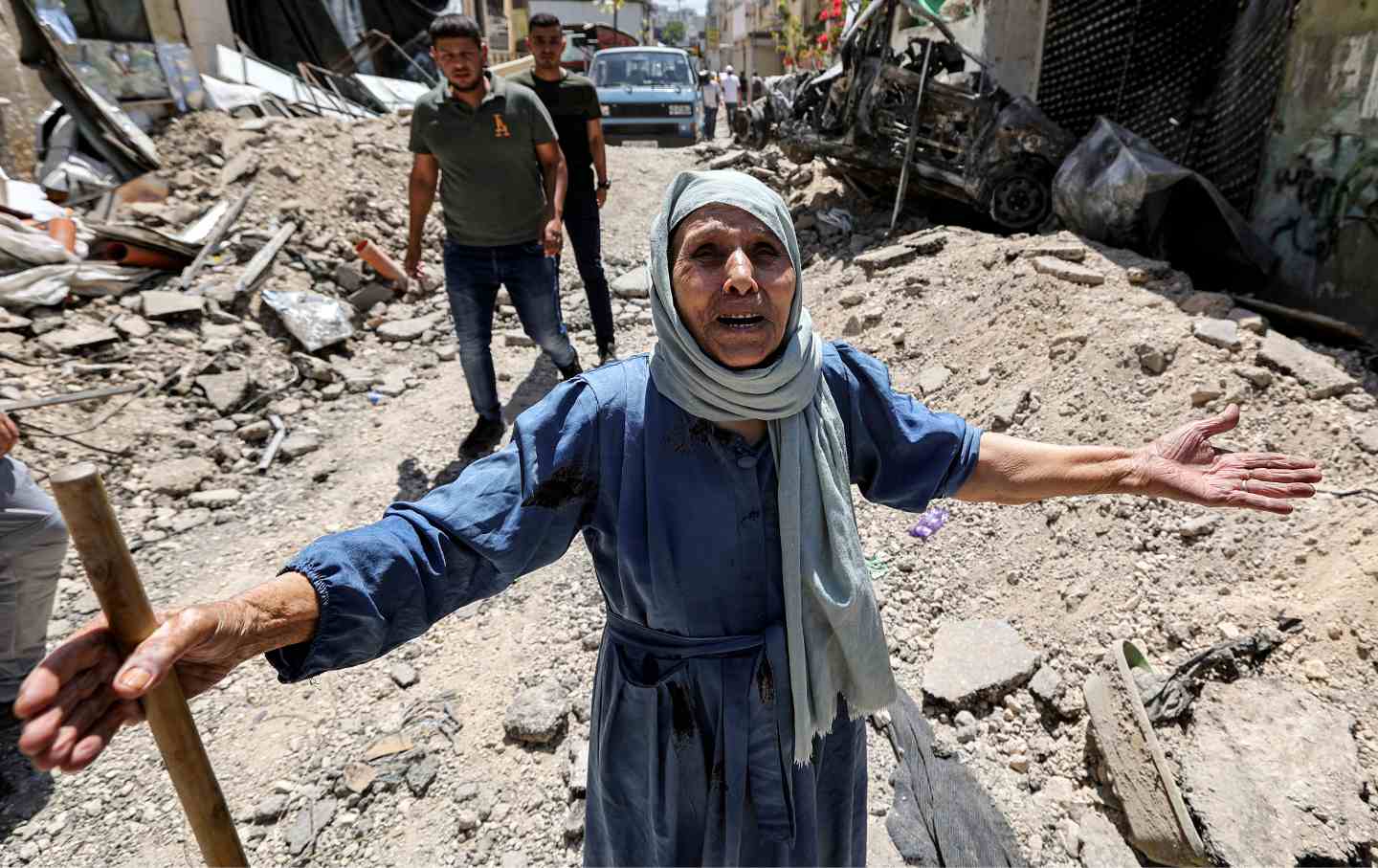The Israeli daily Haaretz reported today that Israel would deny entry to Richard Falk, appointed by the UN Human Rights Council to investigate human rights violations by Israel. Falk is apparently persona non grata in Israel for comments he made comparing Israel to the Nazis.
We all know Israel does not take to criticism well but it is most livid when it comes to any reference to the Holocaust. Is it possible that Israel’s radical response is simply a reaction to the fact that Falk’s comments hit too close to home?
It was not long ago that a member of Israel’s highest political echelons made an offensive comment that could only be construed as a direct reference to the Holocaust. Israeli Deputy Defense Minister Matan Vilnai said last February that Palestinians could face a bigger “shoah” [the Hebrew word for Holocaust] if the rocket attacks on Israeli territory did not cease.
Of course, Israel mopped up its media mess almost immediately after it was spilled, saying shoah actually means disaster and was not necessarily synonymous with Holocaust. However, the comparison was not lost on anyone and the statement begged the question of why an Israeli official would handpick this word to use in reference to the Palestinians.
The truth is that while the events of the Holocaust are horrific beyond imagination, Israel has systematically continued to persecute the Palestinians over the past half century through utilizing methods of oppression also extremely horrific. Coincidence would have it that the same day Israel’s statements on Richard Falk were released, Palestinians marked the anniversary of the massacre of Deir Yassin.
On April 9, 1948 the Stern and Irgun gangs entered the Palestinian village of Deir Yassin and massacred 100 men, women and children. The attack, one of many carried out by Jewish gangs in Israel’s bid to create a Jewish state in Palestine, was also one of the most horrendous. Several weeks before the end of the British Mandate, the Zionist movement was in full force, scrambling to take over as much Palestinian territory around Jerusalem as possible.
Following the massacre, which was carefully planned, Zionist leaders justified the attack saying Deir Yassin had become a meeting point for Arabs planning to attack the western suburbs of Jerusalem already in Jewish hands.
The fact that over 100 people were killed in cold blood, dozens of children orphaned and made homeless and still other men carted out to a stone quarry following the bloodbath only to face their death by firing squad, did not seem to faze the Zionist leadership one bit.
Deir Yassin was, unfortunately not an isolated incident. Jewish gangs, particularly the Haganah, Irgun and Stern gangs, systematically shot and bombed several Palestinian villages and locations prior to the establishment of Israel in May that year, while the official Israeli army took on the gruesome duty after the state’s creation. While several massacres were later documented, some of the most appalling include the Kufr Qassem massacre on October 29, 1956 in which nearly 50 villagers, mostly farmers coming in from their fields to meet an Israeli imposed curfew were gunned down by awaiting officers. One commanding officer even yelled to his soldiers to “reap them” before fire was opened on the unknowing farmers.
On November 3, 1956, Israeli troops entered and occupied the Gaza Strip city and adjacent refugee camp of Khan Younis, ostensibly on reports of “resistance groups.” Later reports would verify that all the victims were unarmed civilians, many who were killed from gunshot wounds to the back while their hands were tied in front of them. According to a subsequent UNRWA investigation, Israeli army soldiers killed 275 Khan Younis residents that day.
The list is undoubtedly too long to cover here. However, the point that must be made is that Israel has, for too long, been immune to international scrutiny for the obvious atrocities it has and continues to commit. When Richard Falk made his statement comparing Israel to the Nazis, he was referring to Israel’s actions in Gaza, which he said was comparable to the Nazis because of their collective nature.
"If this kind of situation had existed, for instance, in the manner in which China was dealing with Tibet or the Sudanese government was dealing with Darfur I think there'd be no reluctance to make that comparison," Falk said in a BBC interview. He was also quoted as saying that Israel has been unfairly shielded from international criticism. To add to his credibility, it should be noted that not only is Falk professor emeritus of international law at Princeton University, he is also Jewish.
So, why is it that Israel is so immune to international scrutiny, even when its own officials slip up and admit to a possible Holocaust against the Palestinians? Why can Israel kill hundreds of Palestinians in Gaza over the course of a few weeks and justify them in the name of Israeli security?
Surely there are several factors that come into play, but no doubt the Holocaust, in all of its horrendousness, is a major component in Israel’s invisible shield against any condemnation of its behavior, which would have elicited international sanctions or even war if perpetrated by another country.
Israel has ingeniously wrapped itself in the protective blanket of eternal victimization as a result of the Holocaust and has, deliberately, fashioned out of this blanket an equally eternal immune system, which protects it from any outside criticism. That is why when Matan Vilnai made such a hateful statement, the world did not react like it should have. This listlessness on the part of the international community is basically an acute fear of being called an anti-Semetic or a Holocaust-denier or whatever other preposterous name-calling Israel uses as a means of diverting attention away from its brutality against the Palestinians. It is all right for Vilnai to say the Palestinians could expect a holocaust but it is completely unacceptable for a renowned UN official to draw any comparisons between Israel and the Nazi regime?
For Israel, the comparison is simply too close for comfort. Just like the Jewish ghettos in Europe in the 1940s, Israel is confining Palestinians in the West Bank to similar cantons. Palestinians are persecuted, killed and oppressed on the sole basis of their identity. Israel does not have gas chambers, thank God. But it does have 500-pound bombs that it drops on apartment buildings and kills whole families at a time. It has carried out massacres like Deir Yassin and Kufr Qassem with impunity. Surely, some form of comparison is warranted.
The wall surrounding the Qalandiya Checkpoint is full of graffiti and artwork. Some show the wall with a huge gap, the bright blue sky on the other side. There is only one spray-painted phrase Israel would not allow. It is no coincidence that the chilling slogan of Nazi concentration camps during World War II “Arbeit Macht Frei” [Work shall set you free] was painted over almost as quickly as it went up. Apparently, Falk was not the only one to see the similarities.
Joharah Baker is a Writer for the Media and Information Programme at the Palestinian Initiative for the Promotion of Global Dialogue and Democracy (MIFTAH). She can be contacted at mip@miftah.org.




